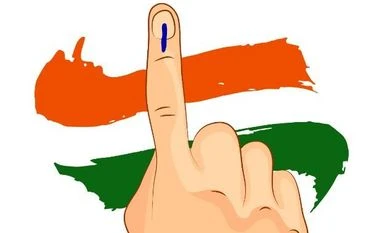When The Election Laws (Amendment) Bill, 2021, was tabled in Rajya Sabha on December 21, members of the opposition parties stormed into the Well of the House. TMC MP Derek O’ Brien was suspended for throwing a rule book at the reporters’ table.
It all happened when the opposition’s motion to send the legislation to a select committee was defeated. But just like the Lok Sabha, the bill sailed through the Upper House amid the protests. It awaits the President’s nod to become a law.
Through the bill, the government is amending both The Representation of the People Acts of 1950 and 1951. One of its main provisions creates a legal framework to link electoral roll data with Aadhaar. The government said it was meant to strike out bogus voters, foreigners who are wrongfully included as voters and also those who are enrolled in more than two constituencies.
While tabling the bill, Union Law Minister Kiren Rijiju had said that “only those who use bogus voters list will oppose this Bill”.
The new rule empowers the electoral registration officers to ask a person applying for a new voter ID to furnish his Aadhaar number for the purpose of establishing identity. They can also seek Aadhaar numbers from registered voters to check for duplication.
While the government has insisted that furnishing Aadhaar is voluntary, the wording of the bill raises doubts about such assertions.
It says that no one shall be denied registration and no entry shall be deleted from the electoral roll due to a person’s inability to furnish Aadhaar number due to sufficient cause as may be prescribed. This suggests that the government will define what constitutes a sufficient cause for a person to not submit his Aadhaar. Such individuals will be allowed to furnish alternate documents, as will be prescribed by the government.
The opposition parties claimed that provisions of the bill violate the Supreme Court’s 2015 judgement that limits the use of Aadhaar to financial and welfare benefits. They said that the apex court had barred unnecessary expansion of the scope of Aadhaar to other areas of life.
They also alleged that it will be used for profiling of voters, and cited the example of Telangana and Andhra Pradesh to buttress the claim.
In 2018, voter ID cards were linked with the Aadhaar database in Telangana and Andhra Pradesh. Later, names of at least 55 lakh voters went missing from the electoral rolls. It forced the government to roll back the decision.
Apart from this, the bill also seeks to designate April 1, July 1 and October 1 as qualifying dates in addition to January 1 for the enrolment of 18-year-olds as voters. As of now, only those who turned 18 on or before January 1 of every year are allowed to register as voters.
Another amendment allows the elections to become gender neutral for service voters. Currently, an Armyman's wife is entitled to be enrolled as a service voter, but a woman Army officer's husband is not. This is set to change as the bill replaces the word "wife" with the word “spouse” in the relevant statute.
Watch video
)